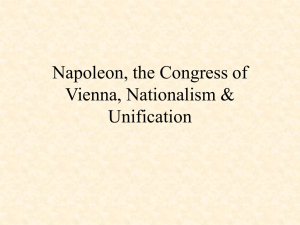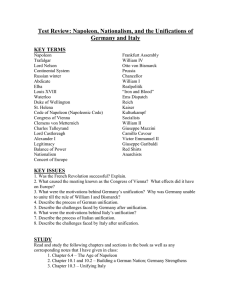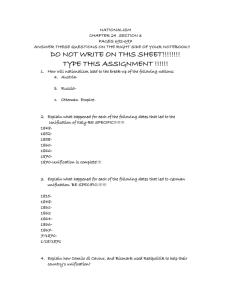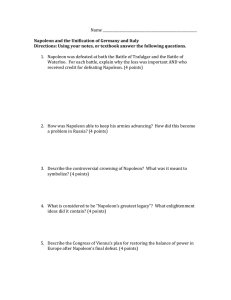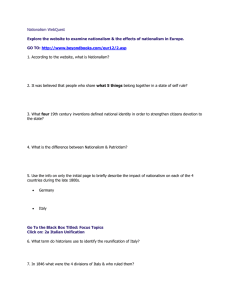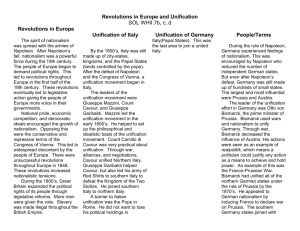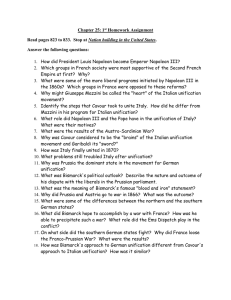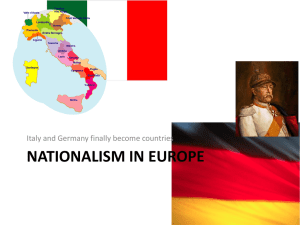SOL NOTES/ UNIT STUDY GUIDE Europe in the 19 Century (1800s)
advertisement
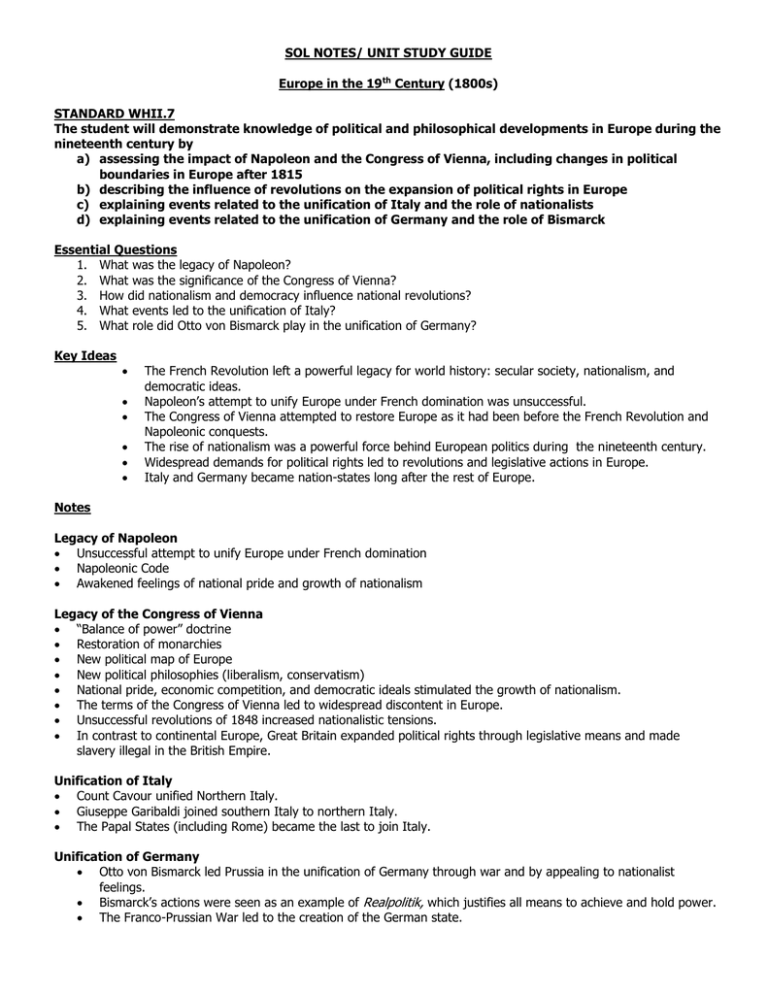
SOL NOTES/ UNIT STUDY GUIDE Europe in the 19th Century (1800s) STANDARD WHII.7 The student will demonstrate knowledge of political and philosophical developments in Europe during the nineteenth century by a) assessing the impact of Napoleon and the Congress of Vienna, including changes in political boundaries in Europe after 1815 b) describing the influence of revolutions on the expansion of political rights in Europe c) explaining events related to the unification of Italy and the role of nationalists d) explaining events related to the unification of Germany and the role of Bismarck Essential Questions 1. What was the legacy of Napoleon? 2. What was the significance of the Congress of Vienna? 3. How did nationalism and democracy influence national revolutions? 4. What events led to the unification of Italy? 5. What role did Otto von Bismarck play in the unification of Germany? Key Ideas The French Revolution left a powerful legacy for world history: secular society, nationalism, and democratic ideas. Napoleon’s attempt to unify Europe under French domination was unsuccessful. The Congress of Vienna attempted to restore Europe as it had been before the French Revolution and Napoleonic conquests. The rise of nationalism was a powerful force behind European politics during the nineteenth century. Widespread demands for political rights led to revolutions and legislative actions in Europe. Italy and Germany became nation-states long after the rest of Europe. Notes Legacy of Napoleon Unsuccessful attempt to unify Europe under French domination Napoleonic Code Awakened feelings of national pride and growth of nationalism Legacy of the Congress of Vienna “Balance of power” doctrine Restoration of monarchies New political map of Europe New political philosophies (liberalism, conservatism) National pride, economic competition, and democratic ideals stimulated the growth of nationalism. The terms of the Congress of Vienna led to widespread discontent in Europe. Unsuccessful revolutions of 1848 increased nationalistic tensions. In contrast to continental Europe, Great Britain expanded political rights through legislative means and made slavery illegal in the British Empire. Unification of Italy Count Cavour unified Northern Italy. Giuseppe Garibaldi joined southern Italy to northern Italy. The Papal States (including Rome) became the last to join Italy. Unification of Germany Otto von Bismarck led Prussia in the unification of Germany through war and by appealing to nationalist feelings. Bismarck’s actions were seen as an example of Realpolitik, which justifies all means to achieve and hold power. The Franco-Prussian War led to the creation of the German state.
